If you have an expecting female dog, you should know that they require regular stimulation through non-strenuous exercises and routine care.
Like us humans, female dogs may experience similar surges in hormones, weight, appetite, and behavior when pregnant.
Therefore, you must ensure to provide them with optimal prenatal care.
Start with providing rich nutritious food as their energy requirement is 30-60% more, ample veterinary visits to administer dewormer, and regular stimulating exercises.
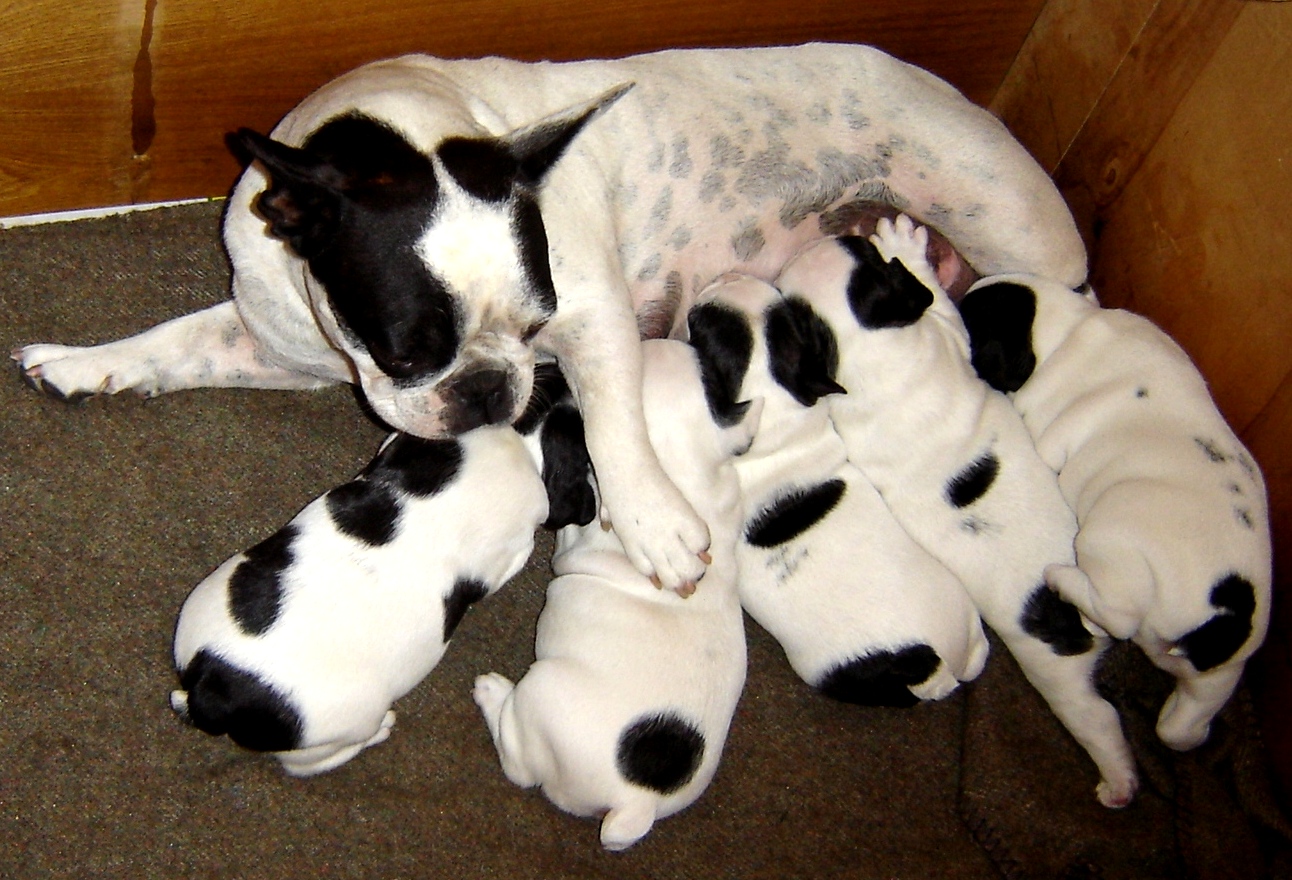
However, the care does not end upon birthing. You should continue the special care post-natal period to ensure healthy motherhood.
Read on to find out how to best care for a pregnant dog before and after delivery.
Signs of Pregnancy in Dogs
Dogs are typically pregnant for 62 days, plus or minus two days, usually divided into three trimesters. Here are a few signs of a pregnant dog.
- A healthy female dog will gain about 15-20% beyond her weight at breeding.
- The abdomen usually swells 20-50%.
- Vaginal discharge approximately one month into the pregnancy.
- Increase in appetite.
- Increase in nipple size.
- Swollen belly.
- Tires more easily.
- Nesting behavior.
- More affectionate.
- Irritability.
Many dogs can be discrete about their mating; hence you should take your dog for an ultrasound to confirm whether she is pregnant.
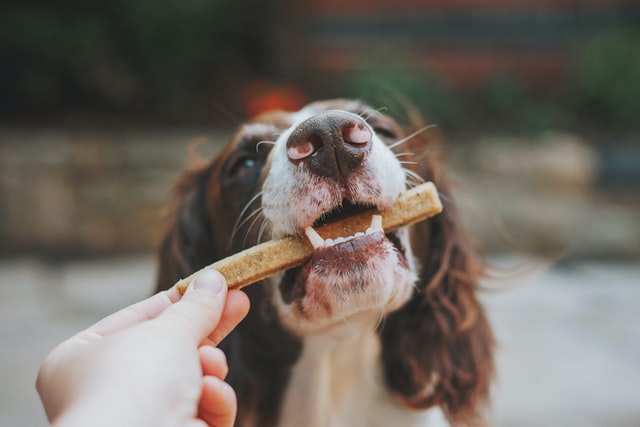
Behavioral Changes in Pregnant Dogs
A pregnant dog may become irritable, less active, and more passive. Keep an eye out for sudden or gradual behavioral changes.
- Some pregnant dogs may seek the comfort of the pet owner more often. Others prefer to be left alone and seclude themselves.
- Nesting behaviors include shredding bedding and other materials around your home.
- Pregnant dogs may become less active and may refrain from eating regular foods. Morning sickness is usual in many dogs.
- The dog may scratch on the floor and some dogs may begin to hoard food and other items.
- During pregnancy, your dog may become unusually irritable to noise and strangers.
How to Best Care for Pregnant Dogs?
Caring for a pregnant dog starts from the time when she gets pregnant until the post-pregnancy stage.
You would need to look into her nutrition, exercise, and veterinary care to ensure.
1. Nutrition
Nutrition is the first and foremost priority of every pregnant dog. Good nutrition is essential to maintain the ideal weight of a pregnant dog.
Both over and underweight dogs can suffer from reproductive consequences.
Along with maintaining an ideal weight, you should ensure to provide more macronutrients, protein, and calories per pound of food. Most pregnant dogs don’t need additional vitamins or supplements as long as she’s getting the proper diet.
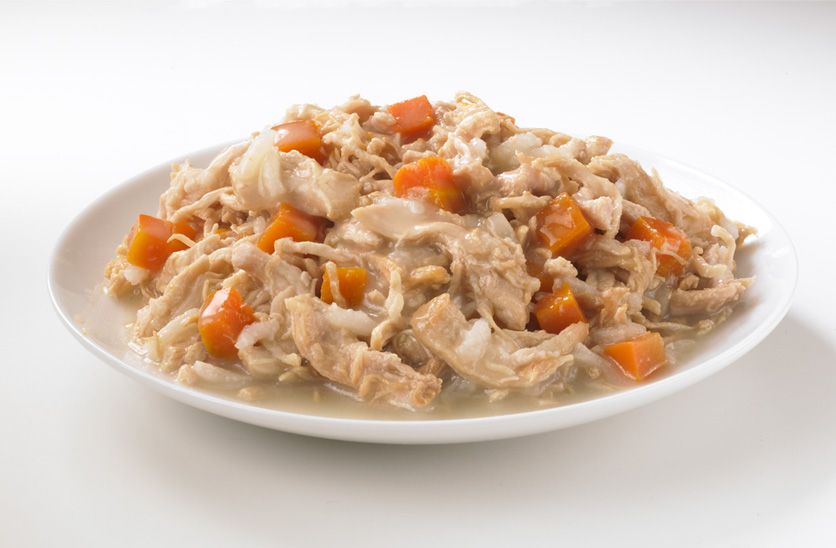
The food should have 1600 kcal digestible energy per pound of food and at least 22% protein.
- Ensure to provide 3-4 smaller meals daily as her puppies can press on her stomach and make it hard for her to eat a big meal!
- Don’t forget to provide a fresh water bowl now and then.
- The highest energy requirement for the mother occurs between weeks 6 and 8 of gestation. Her energy requirement maybe 30-60% higher than regular adult maintenance rations, depending upon the size of the litter.
- Do not feed a puppy food designed for large breed puppies as it does not contain correct calcium and phosphorous balance to support the developing bones of the fetuses or healthy milk production in the mother. Folic acid and essential fatty acid supplementation may be beneficial to keep developing fetuses.
If your pregnant dog seems to be losing weight, you can try moistening the food or switching to a more nutritionally dense food to ensure optimum nutritional feeding.
The nutritional need for a mother dog may steadily increase over the next 20 to 30 days as the fetus grows.
After the first month, the mother may eat twice as much food as she ate before pregnancy.
In the third or fourth week, the puppies will probably start nibbling at her dish, which is an excellent way to introduce them to solid food.
Many vets recommend feeding a pregnant dog food formulated for growth according to AAFCO (The Association of American Feed Control Officials) requirements.
2. Veterinary Care
Starting from diagnosing pregnancy in dogs to constant care leading up to the delivery, you would need to take your dog to the vet couple of times during her pregnancy.
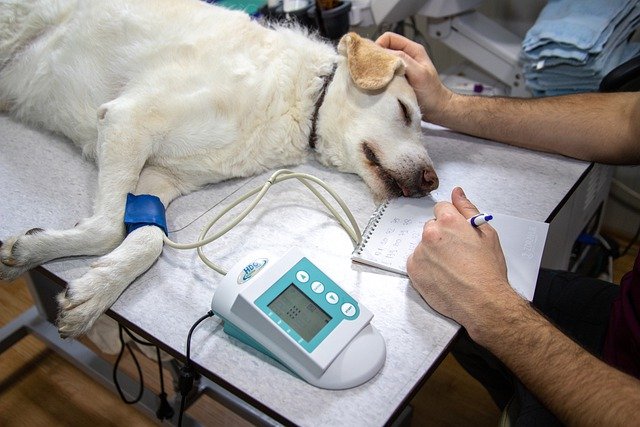
- Around 45 days into the pregnancy, you can take her to the vet for x-rays to determine the number and size of the pups.
- Dogs do not need to be vaccinated during pregnancy.
- If you notice any signs of illness, immediately take your dog to the vet.
- A few days before delivery can be difficult as pregnant dogs often stop eating. Consult with your vet in such a case.
- Pregnant dogs must be administered a dewormer called "Fenbaendazole" every day from day 40 of pregnancy until two days after the puppies are born, which removes the worm from passing to the pups.
3. Exercises
Regular yet stimulating exercise is a must to keep the pregnant dog healthy.
As with all pregnant mothers, a pregnancy in dogs means calm, non-strenuous exercise.
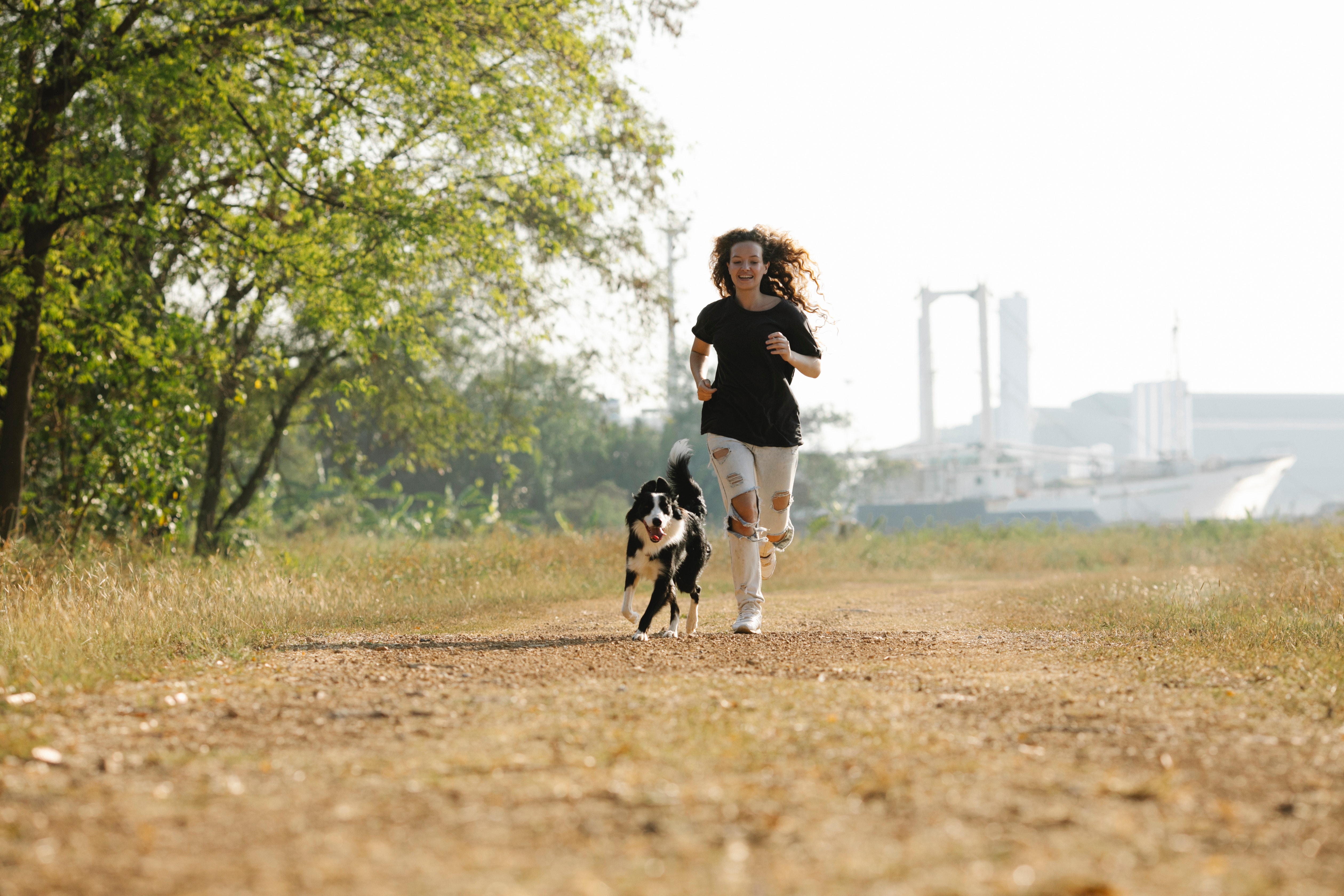
Here are a few tips for non-strenuous exercise.
- Introduce regular short walks and light playtime every day.
- A short 10 to 15-minute walk done once or twice per day is recommended.
- Do not over-stimulate the dog but also prevent her from being lethargic.
- Introduce indoor exercise during the last three weeks of pregnancy to avoid contact with other dogs and animals.
Limit any strenuous activity near the end of the first half of the pregnancy, 4-6 weeks.
4. Whelping
Whelping is known as giving birth. You should prepare an environment for the pregnant dog to nest and deliver pups. Unless you take them to the daycare, you would need to prepare whelping at home.
Whelping boxes are safer, warmer, and comfortable options for pregnant dogs. You must introduce your dog to the whelping box and get her accustomed to it.

Whelping Supply Checklist
- Newspaper to line the whelping box during delivery for an easy cleanup
- Non-skid bath mats for bedding after whelping is done
- Dry, clean towels to clean the puppies
- Paper towels to help with cleaning up
- Thermometer to check your dog’s temperature before whelping
- Unwaxed dental floss to tie off the umbilical cords
- Clean scissors to cut the umbilical cords
- A heating pad or hot water bottle to keep the puppies warm (be careful of it not being too hot)
- Iodine to clean the puppies’ abdomens after the cord is cut and dab on the end of the cut umbilical cord
Post-Natal
Once the pups are birthed, it is time to switch the care to the post-natal phase.
Ensure that your dog is well hydrated and fed and has occasional toilet breaks on her own.
Remember to monitor things like physical condition, weight, temperature, and milk production.
One of the essential post-natal care includes taking care of the young pups.
The puppy care starts with worming when they are two weeks old. Record their weights with kitchen scales and let us know their weight so we can calculate how much wormer each puppy needs.
Puppies are ready for weaning between 6 and 8 weeks old.

On day one of weaning, withhold the mother’s food, allowing the puppies to eat their food while they are away from their mother.
They can all be together that night, and the pups will suckle a bit
On day two of weaning, puppies are separated from their mother and she is fed about 25% of her pre-breeding portion and formulation.
Over the next 4 or 5 days, increase to her entire pre-breeding portions.
For more detail on caring for pregnant dogs, check this infographic.
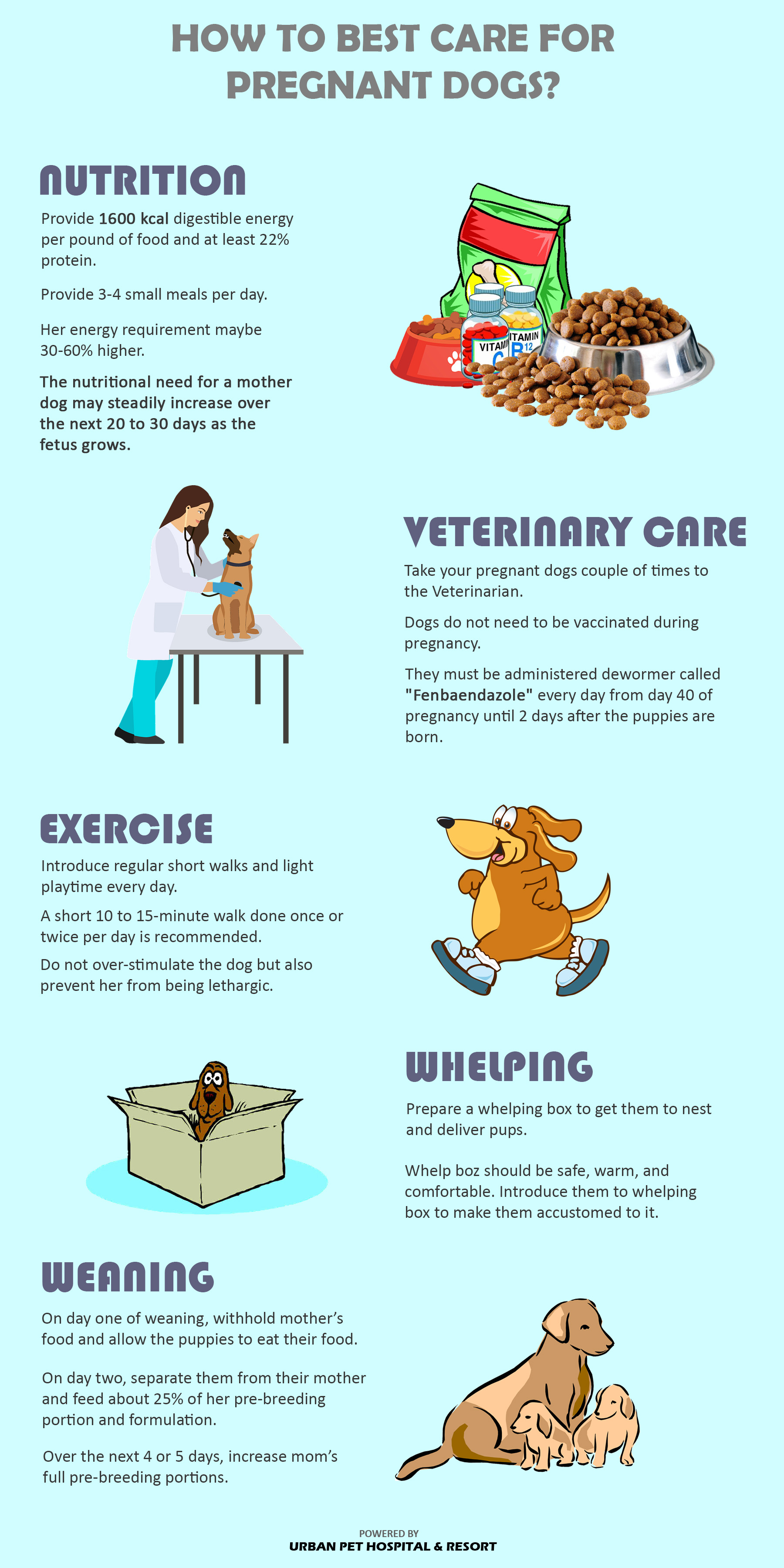
Pregnancy can be a stressful time for both dogs and pet owners.
By learning about dog pregnancy ahead of time, you can better prepare yourself to take care of your dog.
Urban pet Hospital & Resort is the best pet hospital in Des Moines. Get in touch with your certified veterinarian to learn more about handling and to take care of pregnant dogs, preventive measures, and nutritional needs.